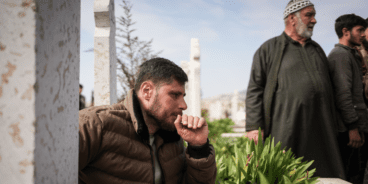
Remarks delivered at UN General Assembly Ministerial Side Event on “Completing the Legacy of Nuremberg: Activating the jurisdiction of the International Criminal Court over the crime of aggression in 2017”
Remarks delivered by Dr. Simon Adams, Executive Director of the Global Centre for the Responsibility to Protect on 20 September 2017 at UN Headquarters in New York. The Ministerial side event was hosted by the government of Liechtenstein.
Your Excellencies, I would like to thank the Permanent Mission of Liechtenstein for organizing this important event on, “Completing the Legacy of Nuremberg.”
The Nuremberg trials, launched in the wake of the Second World War to prosecute prominent members of the Nazi Party for the horrific crimes they committed, are regarded as a historic achievement with regard to ensuring accountability for mass atrocity crimes. The trials had a significant impact on the development of international law, directly influencing the 1948 Convention on Genocide, and eventually inspiring the establishment of the permanent International Criminal Court, which has jurisdiction over genocide, war crimes and crimes against humanity.
It is sometimes forgotten that at the time of the Nuremburg Trials, genocide and crimes against humanity were only just being developed and incorporated into international law. There were uncertainties about their utility and interpretation. In the decades that have passed since then, we have seen that holding perpetrators of atrocities accountable for their actions can not only deliver justice for victims, but can help prevent recurrence.
Just as impunity is corrosive with regard to the international laws and norms we that safeguard humanity, accountability and international justice can be contagious.
Since 2002 the International Criminal Court has tried perpetrators with crimes that include the use of child soldiers in the Democratic Republic of Congo; sexual violence in Central African Republic; and systematic destruction of humanity’s shared cultural heritage at Timbuktu, Mali. In doing so, the Court has also helped establish that any person, regardless of rank or office, can be held accountable for atrocities that violate international law and stain the conscience of humanity.
Activating the crime of aggression would mark a significant step for the further development of the international criminal justice system.
The illegal use of force and acts of aggression can be a major risk factor for the potential perpetration of mass atrocity crimes. States that are willing to commit the crime of aggression are often willing to transgress against other international norms and laws. And it is civilians who often suffer disproportionally as a result, including through aerial bombardments, blockades of territory and the indiscriminate use of weapons against civilian populations.
By outlawing the crime of aggression this December, the States Parties to the Rome Statute have a unique opportunity to contribute to the deterrence of future conflict and the illegal use of military force.
Although the Responsibility to Protect norm is sometimes falsely and erroneously portrayed as creating pathways for the legitimization of unilateral military intervention, the 2005 World Summit Outcome Document clearly and unequivocally stipulates that when a state manifestly fails to protect its populations against genocide, war crimes, crimes against humanity and ethnic cleansing, the international community should always take collective action through the UN Security Council, including, as a last resort, via Chapter VII of the UN Charter. Or in other words, the international community should always take timely and decisive action to uphold its responsibility to protect vulnerable populations in a way that is both legitimate and legal.
In these times of crisis – with 65 million people displaced by conflict, persecution and mass atrocities – we see the danger confronting us. With national chauvinism, violent extremism and authoritarian tendencies growing in many countries, we have also seen an increase in border disputes, xenophobia and military posturing.
Sovereignty entails responsibility. And outlawing the crime of aggression can strengthen the fabric of laws, norms and values of the generation who set out to build the United Nations in the aftermath of the Second World War and in the shadow of Nuremburg. As a member of international civil society we support and commend this initiative.
Thank you.
Related Content


Atrocity Alert No. 430: Syria, Central African Republic and the Philippines
